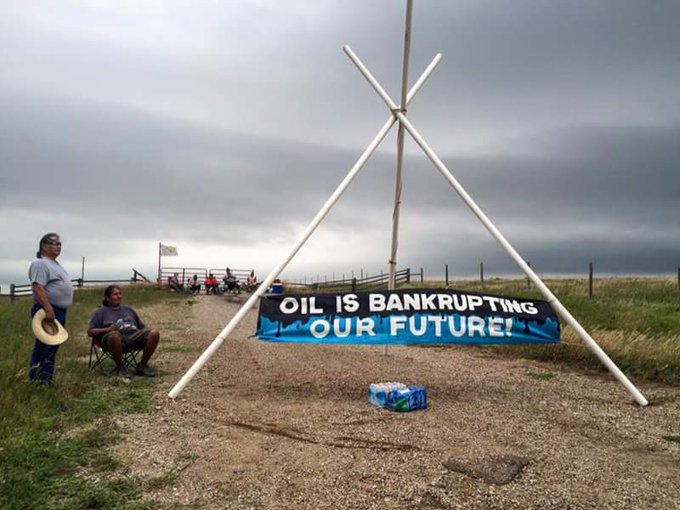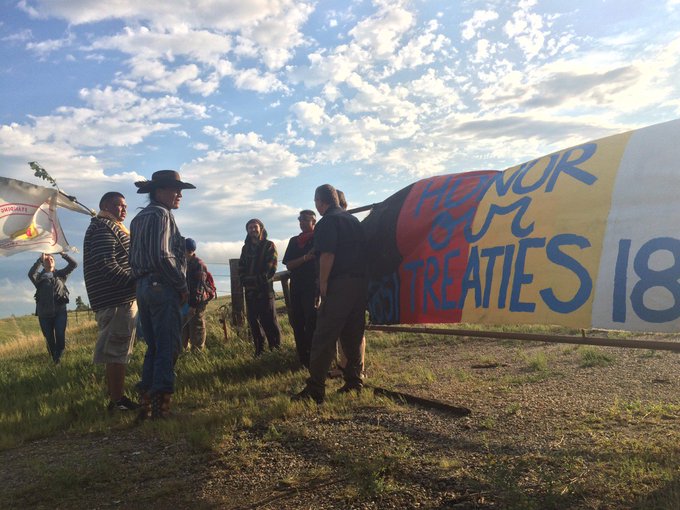Repost from DeSmogBlog
EPA’s Science Advisors Tell Agency Not to Downplay Fracking-Related Water Contamination
By Sharon Kelly, August 14, 2016 – 17:12 On Thursday, the Environmental Protection Agency’s scientific advisors finished their review of EPA‘s national study on fracking and sternly rebuked the EPA for claiming that its draft study had found no evidence of “widespread, systemic” impacts to drinking water.
On Thursday, the Environmental Protection Agency’s scientific advisors finished their review of EPA‘s national study on fracking and sternly rebuked the EPA for claiming that its draft study had found no evidence of “widespread, systemic” impacts to drinking water.
The EPA had not provided the evidence to support that claim, the Science Advisory Board (SAB) peer review panel found. The phrase was widely quoted in the press, but appeared only in a press release and the Executive Summary of EPA‘s draft study of the impacts of fracking on drinking water.
Environmentalists challenged EPA‘s summary of the data, arguing that the agency’s conclusion wrongly ignored the thousands of spills, leaks, and other problems described in the body of the draft report.
The science advisory panel, in a letter signed by 26 of the 30 panelists, agreed. “The SAB is concerned that these major findings as presented within the Executive Summary are ambiguous and appear inconsistent with the observations, data, and levels of uncertainty presented and discussed in the body of the draft Assessment Report,” the SAB wrote.
“The SAB finds that the EPA did not support quantitatively its conclusion about lack of evidence for widespread, systemic impacts of hydraulic fracturing on drinking water resources,” the SAB wrote, “and did not clearly describe the system(s) of interest (e.g., groundwater, surface water), the scale of impacts (i.e., local or regional), nor the definitions of ‘systemic’ and ‘widespread.’”
The SAB‘s 180-page letter makes clear that if the Obama administration claims that fracking has not led to “widespread, systemic impacts” to water, it bears the burden of proving that their assessment is actually supported by evidence.
“The SAB concludes that if the EPA retains this conclusion, the EPA should provide quantitative analysis that supports its conclusion that hydraulic fracturing has not led to widespread, systemic impacts on drinking water resources,” the reviewers wrote.
Environmental advocates welcomed the science panel’s findings as vindication.
“EPA didn’t provide/have a scientific basis for its controversial line, and today EPA SAB is calling them out for that,” Dr. Hugh MacMillan, a senior researcher for Food and Water Watch, told DeSmog in an email.
The controversial language from EPA‘s 998-page draft fracking study‘s Executive Summary had said: “We did not find evidence that these mechanisms [which included wastewater spills or treatment problems as well as underground water contamination] have led to widespread, systemic impacts on drinking water resources in the United States.”
The EPA was asked by Congress to investigate fracking’s impacts on drinking water back in 2009.
That “widespread, systemic” language matters beyond headlines. When state and federal regulators decide whether fracking requires regulation or restrictions like bans, it matters enormously whether the EPA says that problems with fracking are severe enough to require action.
“This, of course, goes to the very heart of the issue, because it’s one thing if, occasionally, there have been some unfortunate accidents — but another if there is something inherent to the entire process of unconventional gas development that harms drinking water,” the Washington Post explained in its coverage of the SAB‘s scathing letter.
The EPA‘s study had long been under fire for apparent coziness between researchers and the shale industry. Repeatedly, news outlets obtained drafts of the EPA‘s study plans that showed a powerful industry influence over the study and a steady narrowing of the study’s scope — which would mean that real-world problems would not make it into EPA‘s on-paper review of fracking’s potential hazards.
“'[Y]ou guys are part of the team here,’ one EPA representative wrote to Chesapeake Energy as they together edited study planning documents in October 2013, ‘please write things in as you see fit,’” DeSmog previously reported.
The SAB science advisory panel, which worked for over a year on reviewing EPA‘s draft study, included scientists from academia, government, and the industry. Four of the 30 advisors dissented, writing their own opinion. “While the report could have articulated the agency’s statistical assessment more clearly, there has not been any facts or evidence demonstrating a systemic or widespread impact to existing drinking water resources or other water resources,” the four dissenters wrote.
So what is in the body of EPA‘s study that was left out of its executive summary? DeSmog reviewed and found that the EPA described numerous problems, including the following:
Meanwhile, accidents keep on happening, both above-ground and under, by the hundreds or thousands. One in a dozen spills by drillers wasn’t contained before it hit drinking water sources – and the spills that hit water supplies tended to be much larger spills than those that didn’t (p. 38). Although gas wells are generally depicted as having numerous layers of concrete and steel casings to prevent the gas, wastewater and chemicals inside the well from interacting with the environment outside it, two thirds of wells had no cement along some portions of their bores (p. 275), an EPA review found. And conditions underground, which can leave wells under high pressure, high temperatures or in “corrosive environments” sometimes caused well casings to have “life expectancies” that run out in under a decade (p. 281) – but the oil and gas industry has told investors that shale wells are expected to keep pumping for 30 years or more.
In its letter yesterday, the SAB peer-review panel also took the EPA to task for neglecting some of the nation’s highest-profile cases of water contamination, like Pavillion, WY, Parker County, TX and Dimock, PA. People from those towns whose water was contaminated had testified before the SAB in November, questioning the panel about the EPA‘s apparent decision to ignore what had happened to their communities.
“I feel that the EPA abandoned me,” Steven Lipsky, of Parker County, Texas, who faces a defamation lawsuit from driller Range Resources after EPA dropped its investigation into the flammable water at his home, told the SAB in November.
In its peer review, the SAB called on EPA to include those three high-profile incidents and questioned the EPA‘s decision to zoom out the lens by focusing on “widespread” problems. ” These local-level potential impacts have the potential to be severe, and the final Assessment Report needs to better characterize and recognize the importance of local impacts, especially since locally important impacts are unlikely to be captured in a national -level summary of impacts,” the SABtold EPA.
On Thursday, oil and gas advocates sought to closely parse the SAB‘s language, suggesting that the EPA did not necessarily have to change its language. “The panel does not ask EPA to modify or eliminate its topline finding of ‘no widespread, systemic impacts’ to groundwater from fracking – it asks EPA to provide more details or a ‘quantitative analysis’ of how the agency came to that conclusion,” Energy in Depth wrote in a blog post on the study.
Dr. David Dzombak, a member of the SAB who helped prepare the SAB‘s opinion told reporters that the SAB was backing a call for the EPA to drop the “widespread, systemic” phrasing.
One option for the agency would be to drop that conclusion,” he told StateImpact. “The SAB is asking here for clarification of an ambiguous statement.”
In a statement, the EPA said it would take its peer-reviewer’s comments into consideration as it moved to finalize its study draft. “EPA will use the SAB’s final comments and suggestions, along with relevant literature published since the release of the draft assessment, and public comments received by the agency, to revise and finalize the assessment,” the EPA said.
Environmental groups called on the EPA to listen closely to the SAB‘s recommendations and to take action to address the problems that the EPA‘s draft study described.
“The science is in. EPA knows that fracking pollutes drinking water,” said Lauren Pagel, Policy Director for Earthworks. “Now is the time for us to move away from this dirty fossil fuel and replace it with clean energy that does not harm public health.”






You must be logged in to post a comment.